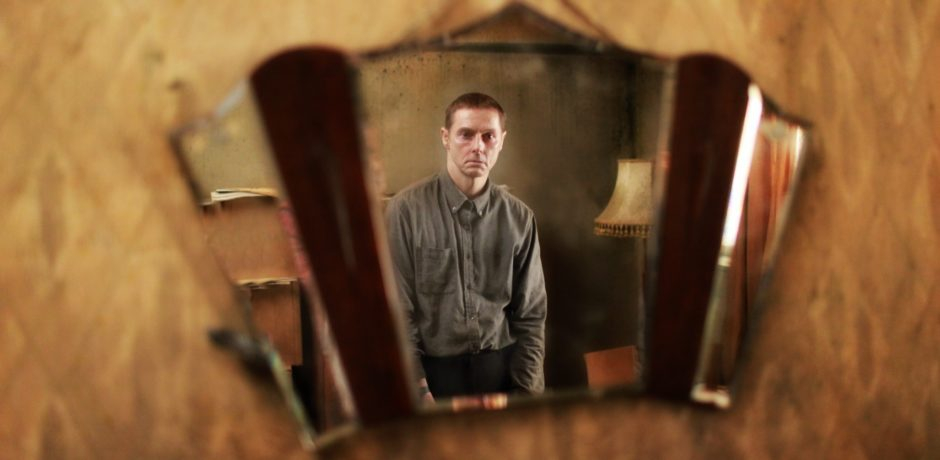Possum | HOME | November 1st
There was a sense of slight apology in Matthew Holness’s introduction to Possum to the gathered audience at HOME’s event screening this week. Known for his cult comedy hit Garth Marengi’s Darkplace, Holness wanted it clear from the start that his debut feature film was in no way comedic and was, in fact, unremittingly horrible and bleak. And while this is certainly true – there are no laughs to had here – part of what helps Possum to stand out and feel fresh is a deep undercurrent of the absurd that gropes its way blindly up from the dread horror and dank rot. Possum itself is an unforgettably grotesque puppet with enormous spider legs and a mannequin head which lives inside a holdall bag. But the most absurd detail is that we find ourselves buying into the idea of the puppeteer Philip (Sean Harris) performs a show with this monstrosity for the benefit of children, even if we never witness this actually occurring.
So while Holness may be trying to distance himself from comedy, Possum is a clear evolution from a tradition of cult British horror-comedy which no doubt stretches back into some form of folkloric sensibility of our absurd and unsettling isle. There are echoes of the darker side of The League of Gentlemen TV series, shades of the early films of Ben Wheatley (Kill List, Sightseers), while the bleaker stuff comes straight out of Shane Meadows’s classic revenge horror, Dead Man’s Shoes. Holness needn’t have worried that his Darkplace fans might have been out of their comfort zone.
Possum is an adaption of Holness’s own short story of the same name which was originally published by Manchester’s small press champions Comma in their anthology The New Uncanny. There are significant differences and Holness talked about having to flesh out and reshape the narrative to suit the screen, but he keeps the focus tight and the cast small so that we too can never find room to escape the looming and relentless presence of that abhorrent puppet. The film is essentially a two-hander between Harris’s Philip, who is both stiff and gangling as he stalks across the Norfolk back-waters in search of a suitable dumping ground, and his grimacing stepfather Maurice played with prickly cackles by the always wonderful Alun Armstrong.
The pair pass terse exchanges about puppets and past lives inside one of the most dank and depressing houses ever committed to screen, while a dark secret lurks behind a forbidding door and a local teenager goes missing. And all the while, the Possum puppet lurks, reflected in mirrors, appearing on beds, or just looming in the foreground as we wait and wait and wait for those legs to twitch into life.
For the first half, this all amounts to a disquieting and, at times, unbearable tension. But as Possum progresses it begins to suffers a little from its own narrow focus. The plot develops slowly and long sequences of Philip carrying, dumping or retrieving the bag and/or puppet become repetitive and somewhat trying. And while there is no doubt that this is principally a psychological horror, Holness eases a little too far back from a suggestion of the supernatural and, by the end, the puppet’s promise felt unfulfilled and a tad hollow. In narrative terms, the story exhausts itself by the midpoint and, like Philip himself railing against the Norfolk broads, it soon has nowhere new to go.
Nevertheless, Possum still commits a unique vision to screen, stacked high with iconic imagery and memorable performances. The score by electronic music pioneers The Radiophonic Workshop is a masterful triumph in its own right; brooding synth tones compete with distorted fuzz and needling flutes that pursue Philip from moor to moor, and room to room and never let him go. Given the heritage of Doctor Who and the works of Delia Derbyshire, the Radiophonics prove themselves a perfect match for this particular corner of folkloric British horror.
Holness has caught the feature-film bug and work is underway on a second production. Now that he has shed the skin that seems to have clung to him since his cult comedy hit, intriguing new apparitions surely lurk in a brighter future.
by David Hartley

